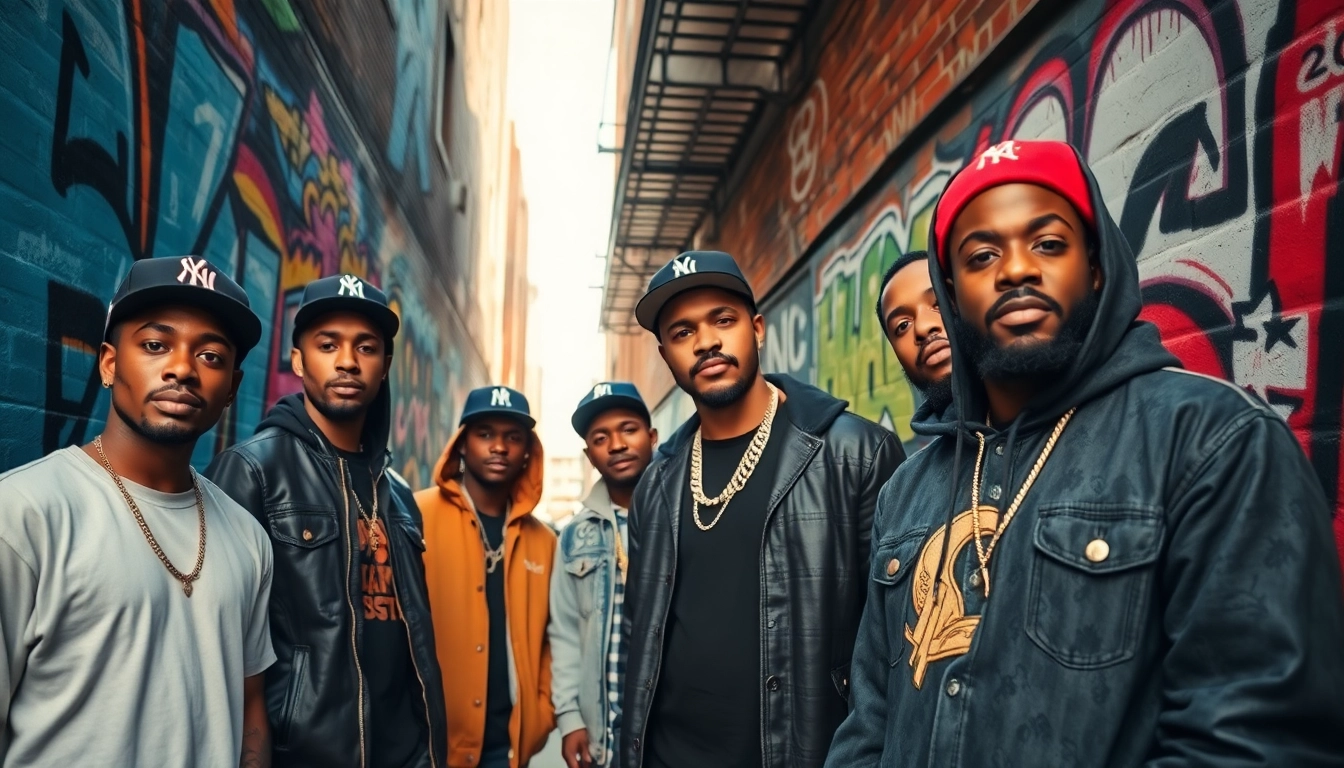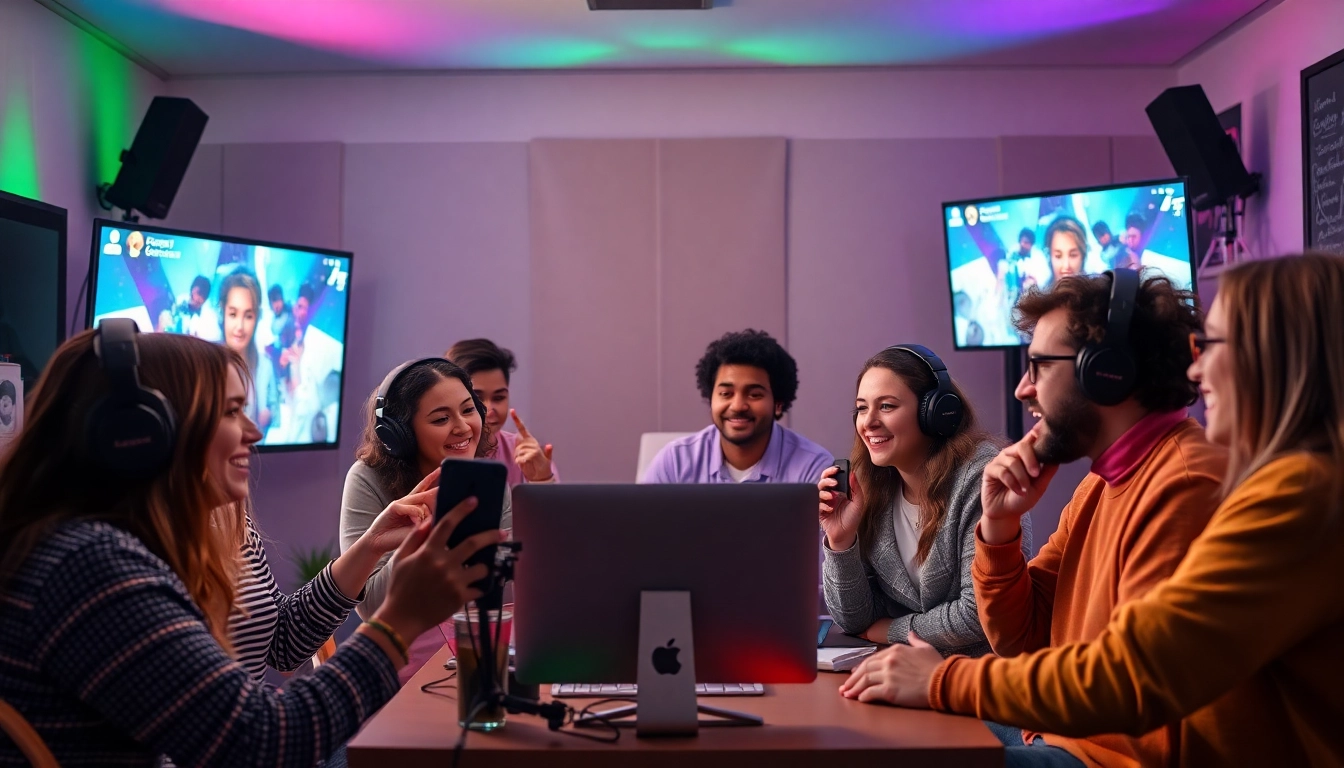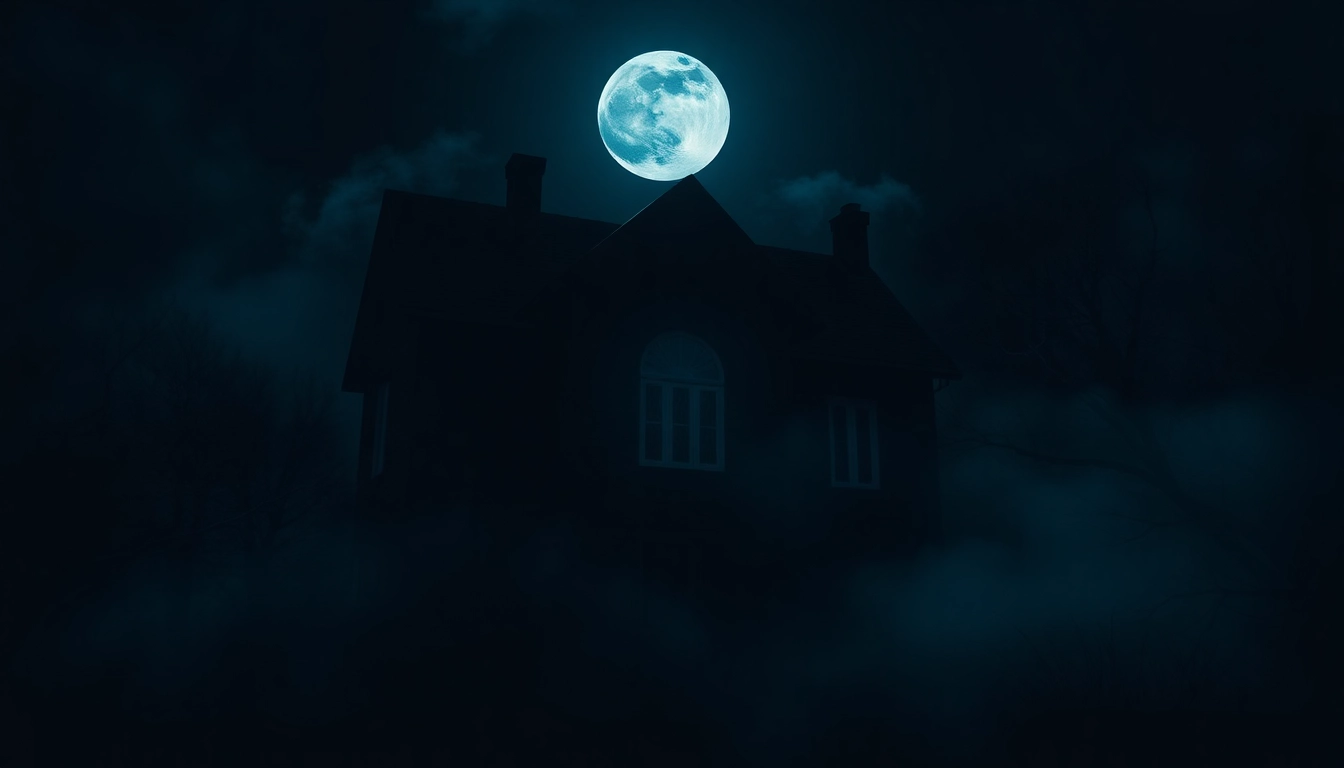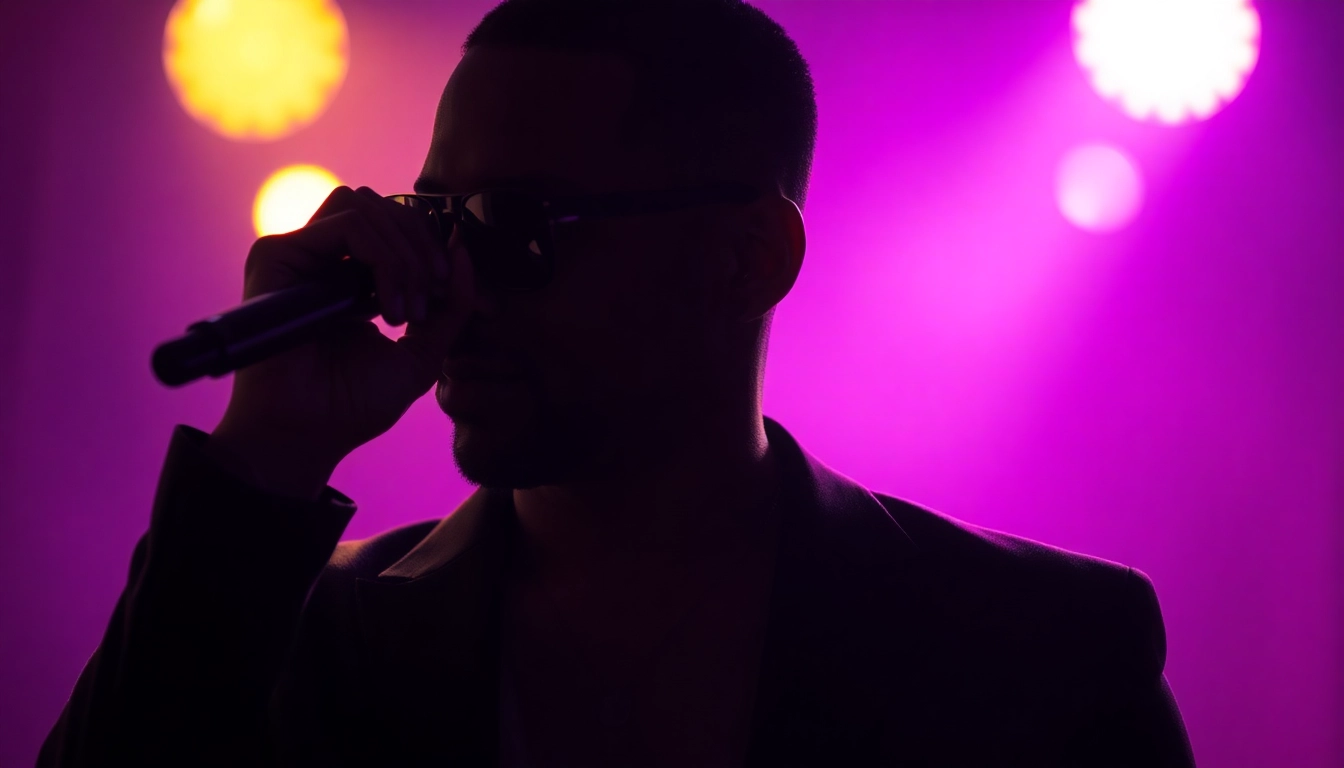Understanding the Chicago Hip-Hop Scene
The Chicago hip-hop scene is a vibrant tapestry woven from diverse sounds, stories, and cultural influences. Over the decades, it has birthed some of the most significant artists and movements in hip-hop history. The city’s unique blend of socio-economic challenges and cultural richness has given birth to a musical style that is as impactful as it is diverse. From the early pioneers to contemporary innovators, Chicago has produced voices that resonate well beyond its borders, making it a capital of hip-hop creativity. In recent years, the Chicago hip-hop artists have gained notable attention, influencing trends and infusing their music with passionate storytelling and profound lyricism.
Historical Roots of Chicago Hip-Hop Artists
Chicago’s hip-hop roots can be traced back to the 1980s when the genre began to take shape in the Windy City. The early days of hip-hop in Chicago were marked by block parties, DJ battles, and graffiti art, kicking off a local scene that drew inspiration from the East Coast and West Coast. Artists like The Cool Kids and Common were among the first to gain recognition, blending various music styles and cultural influences.
In the late ’90s, Chicago hip-hop began to garner national attention, with legends such as Common and Kanye West bridging the gap between mainstream and underground. Common, with his thoughtful lyrics and jazz-influenced beats, set a precedent for artists focused on authenticity and social awareness. Kanye West, a producer turned rapper, redefined the sound of hip-hop by integrating soul samples and electronic elements that appealed to a broader audience.
Key Influencers in the Chicago Hip-Hop Movement
Throughout its history, Chicago has produced a myriad of influential artists who have each played a significant role in shaping the hip-hop landscape. Names such as Lupe Fiasco, who emerged with socially conscious lyrics and complex rhyme schemes, and Chance the Rapper, known for his unique sound and independent success, are just the tip of the iceberg.
Moreover, the emergence of Chief Keef in the early 2010s disrupted traditional views of rap music, bringing to the forefront the subgenre known as ‘drill’—music characterized by its dark beats and gritty storytelling. Other notable artists like Lil Durk and G Herbo have continued to define this sound, reflecting the challenges and realities of life in Chicago’s neighborhoods.
The Evolution of Styles and Genres
Chicago hip-hop is marked by its evolution, embracing various styles and genres, including trap, drill, and even R&B influences. The transition from the jazzy, conscious rap of the ’90s to the hard-hitting beats of drill reflects the socio-economic landscape of the city. Artists adapt their sounds to articulate their experiences, ensuring that Chicago’s hip-hop remains relevant and resonant.
Moreover, the city has become a breeding ground for innovative sub-genres, empowering a new generation of artists to experiment with sound and style. This evolution speaks to Chicago’s role not just as a participant in hip-hop culture but as a trendsetter that influences artists globally.
Famous Chicago Hip-Hop Artists You Should Know
The impact of Chicago hip-hop artists on the genre cannot be overstated. From trailblazers to modern icons, the city has produced talents that are not only successful but also shape the narrative of hip-hop in substantial ways.
Emerging Talents Shaping the Future
As the hip-hop landscape evolves, new talents are emerging from Chicago, ready to make their mark. Artists like Polo G, who has garnered acclaim for his poignant storytelling and melodic delivery, represent a new wave of musicians pushing boundaries while remaining true to their roots. Other names like Juice WRLD and Lil Tecca have risen to prominence, showcasing a unique blend of genres that resonates with a younger audience.
The dedication to artistry and authenticity among emerging Chicago artists continues to attract attention, ensuring that the city will remain a focal point in the hip-hop industry for years to come. These talents not only honor the legacy of their predecessors but also pave the way for the next generation of hip-hop.
Legends Who Changed the Game
Many legendary figures have shaped the Chicago hip-hop scene, profoundly impacting the genre as a whole. Kanye West stands as arguably the most prominent of these figures, pushing the boundaries of hip-hop with his innovative production and critique of contemporary society within his lyrics. His debut album, “The College Dropout,” is often cited as a classic, blending personal narrative with social commentary.
Lupe Fiasco is another titan whose complex lyrics and distinctive voice have marked him as a major influencer. His work often tackles themes such as politics, identity, and social issues, earning him critical acclaim while challenging mainstream narratives.
Women in Chicago Hip-Hop: Trailblazers and Innovators
The contributions of women in the Chicago hip-hop scene are critically important yet often overlooked. Artists such as Noname, who blends spoken word and jazz influences with her rap, provide a refreshing perspective within the genre. Her commitment to discussing intersectional feminism and social issues brings an essential voice to the forefront.
Furthermore, artists like Jamila Woods and Chance the Rapper’s collaborator Saba have illuminated the path for female artists. Their influence demonstrates the richness of female artistry in Chicago’s hip-hop, showcasing the depth and variety still present in the city’s music scene.
The Global Influence of Chicago Hip-Hop Artists
The relevance of Chicago hip-hop extends well beyond the city limits, influencing artists and music styles globally. The unique blend of narratives, soundscapes, and cultural influences has played a pivotal role in shaping not just American hip-hop but the wider global music landscape.
Connection to Broader Hip-Hop Culture
Chicago artists have consistently connected with broader hip-hop culture through various collaborations and performances. The city’s unique challenges resonate with audiences everywhere, creating a shared understanding of the struggles and triumphs depicted in their music. The crossover collaborations between Chicago artists and mainstream figures help bridge the gap between different genres and regional sounds, further solidifying Chicago’s role in global hip-hop culture.
Cross-Genre Collaborations
Furthermore, the willingness of Chicago artists to collaborate across genres has contributed to the city’s influence. Partnerships between hip-hop artists and musicians from R&B, jazz, and pop have resulted in groundbreaking tracks that push the definition of hip-hop. Chance the Rapper’s work with various artists exemplifies the cross-genre collaborations that not only captivate audiences but also foster a culture of innovation within the music industry.
Chicago Artists Who Made It Internationally
Several Chicago artists have achieved international acclaim, significantly influencing the global music scene. Artists like Kanye West are not only recognized for their music but also for their presence in fashion and culture. Similarly, Chance the Rapper’s innovative approach to releasing music and connecting with fans defines a new era in artist-audience relationships. This phenomenon of Chicago artists transcending boundaries set the stage for future musicians to explore global collaborations and themes.
Learning from Chicago Hip-Hop: Lessons for Aspiring Artists
For aspiring artists, the Chicago hip-hop scene offers valuable lessons on creativity, resilience, and community. The variety of styles and stories found in Chicago’s artists serves as a guide for those looking to carve their path in the music industry.
Tips from Successful Chicago Rappers
Successful Chicago rappers emphasize the importance of authenticity in their work. Artists like Lupe Fiasco and Noname encourage aspiring musicians to remain true to their roots and express their personal stories through their art. This authenticity builds a connection with listeners and strengthens an artist’s brand in a competitive industry.
Building a Local Following in Your City
Understanding and engaging with the local community is vital for building a loyal fan base. Many successful Chicago artists began by performing in local venues, participating in cyphers, and connecting with other musicians. This grassroots approach helps establish a presence and creates a supportive network that can lead to broader opportunities.
Harnessing Social Media and Digital Platforms
In the digital age, social media serves as a powerful tool for artists to promote their music and connect with fans. Chicago’s hip-hop artists, such as Chance the Rapper and Lil Durk, have utilized platforms like Instagram and TikTok to share their journeys, engage with listeners, and promote new releases. Aspiring artists should take advantage of these tools to build their brands and reach wider audiences.
Challenges and Opportunities for Chicago Hip-Hop Artists
While the Chicago hip-hop scene is rich with talent and creativity, it is not without its challenges. Artists often navigate obstacles such as violence, economic disparities, and systemic issues that influence their music and livelihoods. However, these challenges also open the door for important conversations and artistic exploration.
The Impact of Chicago’s Social Context on Music
The socio-economic landscape of Chicago plays a pivotal role in shaping the themes and narratives in its hip-hop music. Artists often address issues related to violence, poverty, and systemic oppression in their work. This conscious engagement with social realities not only provides a voice for the community but also challenges listeners to understand and empathize with these experiences.
Overcoming Challenges in the Industry
Despite the struggles faced by Chicago artists, many have found ways to overcome barriers in the music industry. By forming collectives and partnering with independent labels, artists can maintain creative control over their work and find alternative avenues for distribution. This autonomy fosters an environment where creativity can flourish without the constraints often imposed by major labels.
Future Directions for Chicago’s Hip-Hop Scene
As the hip-hop landscape continues to evolve, Chicago’s scene is poised for further growth and diversification. The rise of independent artists and digital platforms will likely lead to a broader range of voices and stories being told. With a growing global audience, Chicago hip-hop artists have the opportunity to expand their reach while remaining grounded in the realities and narratives of their city.
In conclusion, the Chicago hip-hop scene is a dynamic and influential part of the musical landscape. Its artists have shaped the genre while remaining deeply rooted in their communities, telling stories that resonate on personal and global levels. As new talents continue to emerge and legends persist, the legacy of Chicago hip-hop will undoubtedly continue to thrive.



